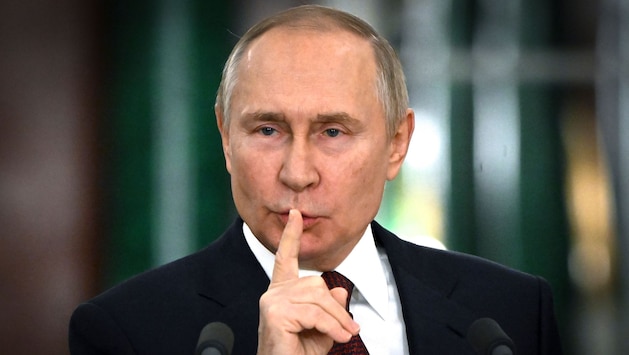Embarrassing appraisal: In a special committee of the European Parliament in the Kaili scandal, the Kremlin’s aberrations of leading personalities in the Federal Republic are discussed.
After the revelations about the corruption scandal surrounding the former EU Vice President Eva Kaili, MEPs are trying to prepare for the future. While Parliament President Roberta Metsola is working on a plan for a new code of conduct, a special committee is dealing with “foreign influence on all democratic processes in the European Union”. Embarrassing for Germany: The committee’s draft report accuses decision-makers in Germany of allowing themselves to be harnessed for Russian interests.
On the subject of elite capture, the draft report expresses concern about “how political elites in the EU, for example in Germany, have advanced Gazprom’s interests and constant support for gas supplies from Russia have favored”.
German committee members evaluate this passage with different accents. The Green MP Viola von Cramon, one of six so-called shadow reporters who are supposed to prevent the committee report from being too one-sided, intensified the criticism in an interview with FOCUS online.
“Due to Germany’s Russia policy in the past, we are in a crisis in Europe at the moment, which is partly due to the purchased elites in German politics,” criticizes the Greens, who are strongly committed to the Ukrainian struggle for survival. “So far in Germany we have never managed to see through Russia’s real ambitions, because in part our elites were bought and prevented a real discussion of Russia’s goals.”
The Greens want German defense policy to be “much clearer”. The question of supplying main battle tanks to Ukraine “must undoubtedly be answered in the affirmative”. However, “some in the federal government have so far appeared to be quite insensitive to the Eastern European partners”. Von Cramon adds: “If we had listened to the Eastern Europeans sooner, we could have saved a great many lives in Ukraine.”
The MP calls for more vigilance: “We must now pay the greatest attention to our critical infrastructures, and the draft report must take this into account even more. Whether shipping or data traffic, motorways or power lines – every day something happens in Germany that points to sabotage damage. We should think about charging the Russian state for the damage caused.”
The Christian Democrat Sabine Verheyen concedes: “The fact that Germany has trusted Russia for too long is justified criticism.” result in bashing. The Federal Republic’s earlier policy on Russia arose from the earlier political constellations.” Verheyen emphasizes: “It cannot be that we as Germany, always lying in the middle, are always leaning towards ourselves at the expense of our neighbors who are closer to Russia make foot.”
The examples of influence contained in the draft so far are not balanced enough for Verheyen. She criticizes: “In addition to the indications of a Chinese presence in the ports of Hamburg and Rotterdam, the report should also name other places where Beijing’s influence is much more massive, such as Piraeus, whose port is predominantly under Chinese control. In the large port of Hamburg, on the other hand, there is only one terminal with a minority stake by the Chinese.”
The draft report mentions Chinese economic involvement in more than 20 European ports, Hamburg and Rotterdam are mentioned by name. The Spanish region of Catalonia is also mentioned: Russia is interfering in the separatist movement there. In addition, there are regular revelations in some countries about Russian donations to parties and politicians. Russia is also trying to stir up reservations about the admission of Ukrainian refugees in the EU with false information.
The report’s author, Latvian MEP Sandra Kalniete, Verheyen’s colleague in the conservative European People’s Party (EPP) group, names China and Iran as well as Russia as masterminds of attempts to infiltrate critical infrastructure and supply chains in the EU. She sees worrying examples of Chinese interference in the development of key technologies in Europe in Austria and the Czech Republic, among others. There, Beijing finances a number of researchers directly. The scientific fields affected included artificial intelligence, quantum technology and biotechnology.
So far, the draft report has only mentioned the Kaili scandal in passing, and the revelations were omitted in the final work on the paper. The committee was set up long before the allegations against the ex-vice president of parliament became known.
Several of its members advocate giving more space to what is happening around Kaili. Parliament is expected to adopt the report in May. According to French committee chair Raphael Glucksmann, a member of the Socialist faction badly hit by the Kaili scandal, his key message must be: “Our democracy is not for sale.”
Russian President – How rich is Vladimir Putin? What experts appreciate
Genetic researcher – Putin’s first daughter: What is known about Maria Vorontsova aka Faassen
Putin’s Net – How the KGB took back Russia and then set their sights on the West








